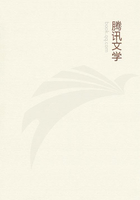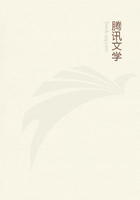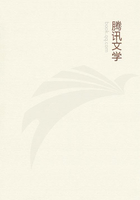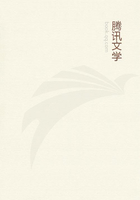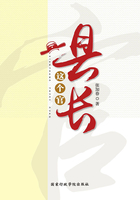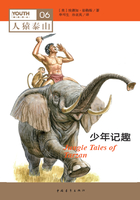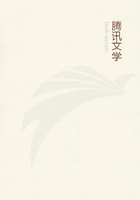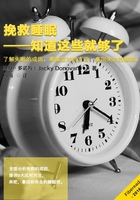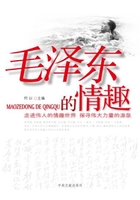He directed his attacks almost exclusively against the priests.He did not, however, preach quiet debate and peaceful progress, as Luther had begun to do at that time, but he continued the early violent preachments of Luther, appealing to the princes of Saxony and the people to rise in arms against the Roman priests."Is it not Christ who said: 'I have come to bring, not peace, but the sword'? What can you [the princes of Saxony]
do with that sword? You can do only one thing: If you wish to be the servants of God, you must drive out and destroy the evil ones who stand in the way of the Gospel.Christ ordered very earnestly (Luke, 19, 27): 'But these mine enemies, that would not that I should reign over them, bring hither, and slay them before me.' Do not resort to empty assertions that the power of God could do it without aid of our sword, since then it would have to rust in its sheath.We must destroy those who stand in the way of God's revelation, we must do it mercilessly, as Hezekiah, Cyrus, Josiah, Daniel and Elias destroyed the priests of Baal, else the Christian Church will never come back to its origins.We must uproot the weeds in God's vineyard at the time when the crops are ripe.God said in the Fifth Book of Moses, 7, 'Thou shalt not show mercy unto the idolators, but ye shall break down their altars, dash in pieces their graven images and burn them with fire that I shall not be wroth at you.'" But these appeals to the princes were of no avail, whereas the revolutionary agitation among the people grew day by day.Muenzer, whose ideas became more definitely shaped and more courageous, now definitely relinquished the middle-class reformation, and at the same time appeared as a direct political agitator.
His theologic-philosophic doctrine attacked all the main points not only of Catholicism but of Christianity as such.Under the cloak of Christian forms, he preached a kind of pantheism, which curiously resembles the modern speculative mode of contemplation, and at times even taught open atheism.He repudiated the assertion that the Bible was the only infallible revelation.The only living revelation, he said, was reason, a revelation which existed among all peoples at all times.To contrast the Bible with reason, he maintained, was to kill the spirit by the latter, for the Holy Spirit of which the Bible spoke was not a thing outside of us; the Holy Spirit was our reason.Faith, he said, was nothing else but reason become alive in man, therefore, he said, pagans could also have faith.Through this faith, through reason come to life, man became godlike and blessed, he said.Heaven was to be sought in this life, not beyond, and it was, according to Muenzer, the task of the believers to establish Heaven, the kingdom of God, here on earth.As there is no Heaven in the beyond, he so there is no Hell in the beyond, and no damnation, and there are no devils but the evil desires and cravings of man.Christ, he said, was a man, as we are, a prophet and a teacher, and his "Lord's Supper" is nothing but a plain meal of commemoration wherein bread and wine are being consumed with mystic additions.
Muenzer preached these doctrines mostly in a covert fashion, under the cloak of Christian phraseology which the new philosophy was compelled to utilise for some time.The fundamental heretic idea, however, is easily discernible in all his writings, and it is obvious that the biblical cloak was for him of much less importance than it was for many a disciple of Hegel in modern times.Still, there is a distance of three hundred years between Muenzer and modern philosophy.
Muenzer's political doctrine followed his revolutionary religious conceptions very closely, and as his theology reached far beyond the current conceptions of his time, so his political doctrine went beyond existing social and political conditions.As Muenzer's philosophy of religion touched upon atheism, so his political programme touched upon communism, and there is more than one communist sect of modern times which, on the eve of the February Revolution, did not possess a theoretical equipment as rich as that of Muenzer of the Sixteenth Century.His programme, less a compilation of the demands of the then existing plebeians than a genius's anticipation of the conditions for the emancipation of the proletarian element that had just begun to develop among the plebeians, demanded the immediate establishment of the kingdom of God, of the prophesied millennium on earth.This was to be accomplished by the return of the church to its origins and the abolition of all institutions that were in conflict with what Muenzer conceived as original Christianity, which, in fact, was the idea of a very modern church.
By the kingdom of God, Muenzer understood nothing else than a state of society without class differences, without private property, and without Superimposed state powers opposed to the members of society.All existing authorities, as far as they did not submit and join the revolution, he taught, must be overthrown, all work and all property must be shared in common, and complete equality must be introduced.In his conception, a union of the people was to be organised to realise this programme, not only throughout Germany, but throughout entire Christendom.Princes and nobles were to be invited to join, and should they refuse, the union was to overthrow or kill them, with arms in hand, at the first opportunity.
Muenzer immediately set to work to organise the union.His preachings assumed a still more militant character.He attacked, not only the clergy, but with equal passion the princes, the nobility and the patricians.He pictured in burning colours the existing oppression, and contrasted it with the vision of the millennium of social republican equality which he created out of his imagination.He published one revolutionary pamphlet after another, sending emissaries in all directions, while he personally organised the union in Altstedt and its vicinity.

